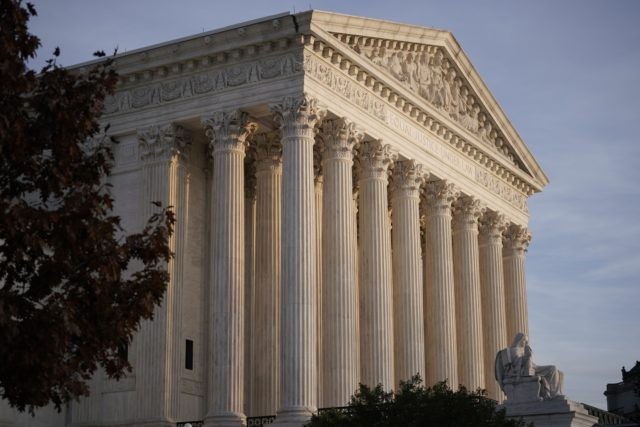The argument that state legislatures have sole power to interpret their election laws, and the process for selecting presidential electors, is set to be heard by the Supreme Court — even as those on one side of the argument are being targeted by investigators.
In recent weeks, the Department of Justice has served subpoenas and search warrants on dozens of individuals who have argued that presidential electors can legally be rejected by the Vice President and sent back to state legislatures for further reconsideration.
The subpoenas have been part of a so-called “fake electors” inquiry into alternate slates of electors prepared by Trump supporters after the 2020 election. They were prepared as a remedy in the event that courts ruled state legislatures could decide electoral slates. However, the media, the Democratic Party, and investigators — both in congress and in law enforcement — have cast the alternate electoral slates as if they were an attempt to defraud Congress and impose pro-Trump electors outside any constitutional process.
The Supreme Court, in Moore v. Harper, will consider the question of whether the state courts can overturn rules for elections that are established by the state legislatures. The question concerns Article I, Section 4, of the U.S. Constitution, which states: “The Times, Places and Manner of holding Elections for Senators and Representatives, shall be prescribed in each State by the Legislature thereof.” Likewise, Article II, Section 1, provides: “Each State shall appoint, in such Manner as the Legislature thereof may direct, a Number of Electors.”
Trump supporters, citing disputes over results in several states, objected to the intervention of state courts in voting processes, often at the behest of Democrats and left-wing groups who wanted to expand vote-by-mail and other innovations.
At the time, the Supreme Court declined to hear appeals from Republicans who argued that state courts had overstepped their legal authority. Justice Clarence Thomas wrote at the time that the Court had failed to deal with an issue that would recur — and it has.
The dispute in Moore v. Harper is not about the 2020 election, but rather about congressional redistricting in North Carolina. However, it has implications for the arguments made about the 2020 election — arguments now considered part of an “insurrection.”
Whatever the Court’s decision in Moore v. Harper, the fact that the argument of Trump supporters will be represented by litigants before the highest court in the land calls into question the justification for investigating those who made those arguments in public.
Joel B. Pollak is Senior Editor-at-Large at Breitbart News and the host of Breitbart News Sunday on Sirius XM Patriot on Sunday evenings from 7 p.m. to 10 p.m. ET (4 p.m. to 7 p.m. PT). He is the author of the recent e-book, Neither Free nor Fair: The 2020 U.S. Presidential Election. His recent book, RED NOVEMBER, tells the story of the 2020 Democratic presidential primary from a conservative perspective. He is a winner of the 2018 Robert Novak Journalism Alumni Fellowship. Follow him on Twitter at @joelpollak.

COMMENTS
Please let us know if you're having issues with commenting.